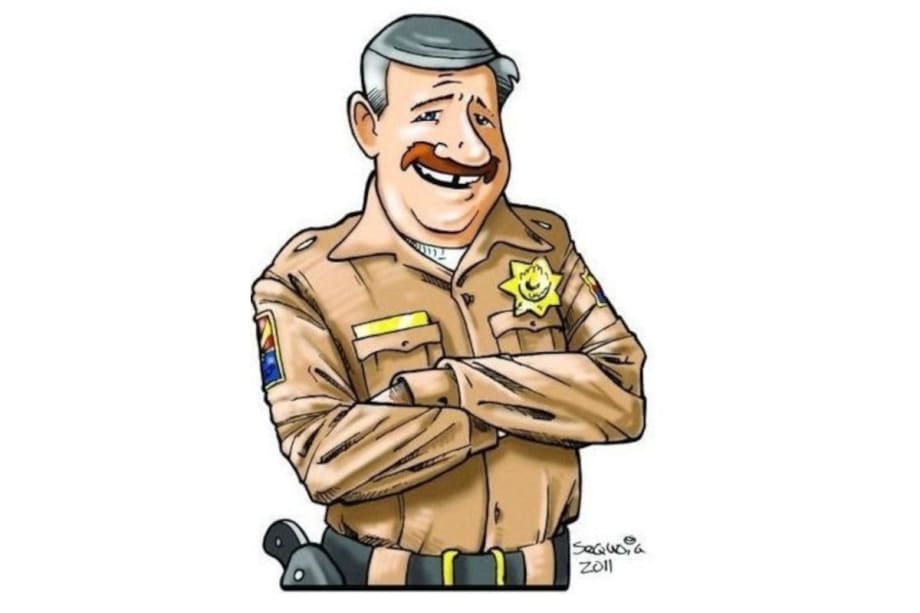Over the years I have had the pleasure to do a lot of training to help keep crimefighters safe. Conducting classes throughout the United States and Canada, I have discussed skills, including traffic stops, building searches, domestic violence response, and on and on.
Today, it seems such skills are universally taught and practiced even though some “thought leaders” have labeled them “Warrior Training,” which is purported to “dehumanize” assailants and criminals. I have never actually taught a class or attended one that advocated violation of Constitutional rights, but that has not stopped the critics of the criminal justice system from promoting their views.
Law enforcement has had to endure countless iterations of “training” on such issues as “gender awareness,” “institutional racism,” and “Critical Race Theory.” What specific behavior these sessions are designed to change is a point of great debate, but the recent death toll among America’s law enforcement community would seem to signal a need to reinforce officer safety and skill maintenance as priorities. As Robert F. Mager wrote in “What Every Manager Should Know About Training,” “Successful job performance requires the following four conditions—all of them: skill, self-confidence, opportunity to perform, and supportive environment.”
Essential skills, like firearms proficiency, tactical movement, driving, and defensive tactics, can’t be stored; they need to be “refreshed” with in-service training that includes the use of proper equipment, and the application of supportive supervision. Chiefs and sheriffs are struggling in many communities to deal with hostile media, uninformed “activists,” and unfriendly politicians, leaving them little time and resources to get their basic training needs fulfilled. The tragic officer death toll of 2021 is drawing much needed attention to the needs of local and state law enforcement, and it is becoming more and more untenable to be a “defund the police” advocate. But what do we do in the meantime, in the gap between a future new awakening to the needs of law enforcement and the challenges we face today?
First, we must analyze our performance problems. Do our people have the skills needed to deal with today’s threats? Most officers do know proper tactics and techniques, but time, routine, and the failure of supervisors to “coach” leave officers often ignored or even punished for doing things right. Just sit with any three cops having lunch, and their “griping” will give you a sense of the obstacles they perceive.
So, if we already have the skills what do we need to do? We need to practice what we preach. Every traffic stop, domestic, and silent alarm is a training repetition. Supervisors need to give feedback when they perceive an officer failing to do what is expected from training or policies and procedures. Feedback given at the time of the action is the most effective. It reinforces safety and nips bad habits in the bud.
Once a bad technique becomes a habit it becomes automatic and invisible to the performer. One of the most frustrating things about evaluating an officer’s performance from a dash cam or body camera is to see a bad habit performed over and over again by an officer who is ultimately injured or killed due to their repeated mistakes. A simple word of correction cold have stopped such issues.
Sergeants also need to be a source of feedback for an agency to determine what may be affecting officer safety or performance. Equipment issues, policy issues, and other factors can impede personnel from doing their jobs effectively or safely. Already we see officers on video allowing threatening behavior beyond belief due to their fear of administrative or prosecutorial punishment. Sadly, it doesn’t appear this is going away anytime soon, so leaders need to do everything possible to support the safety and mission of their people.
As Bill Westfall wrote years ago in his seminal article, “Leadership: Caring for the Organizational Spirit,” “We must have leaders who understand that the most important contribution they make to their people and their organization is the care of the spirit of both.”
True leaders see this modern crisis as an opportunity to manage resources and inspire their people. Law enforcement is a calling: No one is a draftee. As such the spirit of those folks is an essential element of an organization’s success. Keep fighting for resources, train when needed, supervise effectively, and never stop reinforcing the essential tasks to achieve the mission of law enforcement.
Dave Smith is an internationally recognized law enforcement trainer and is the creator of “JD Buck Savage.” You can follow Buck on Twitter at @thebucksavage.












